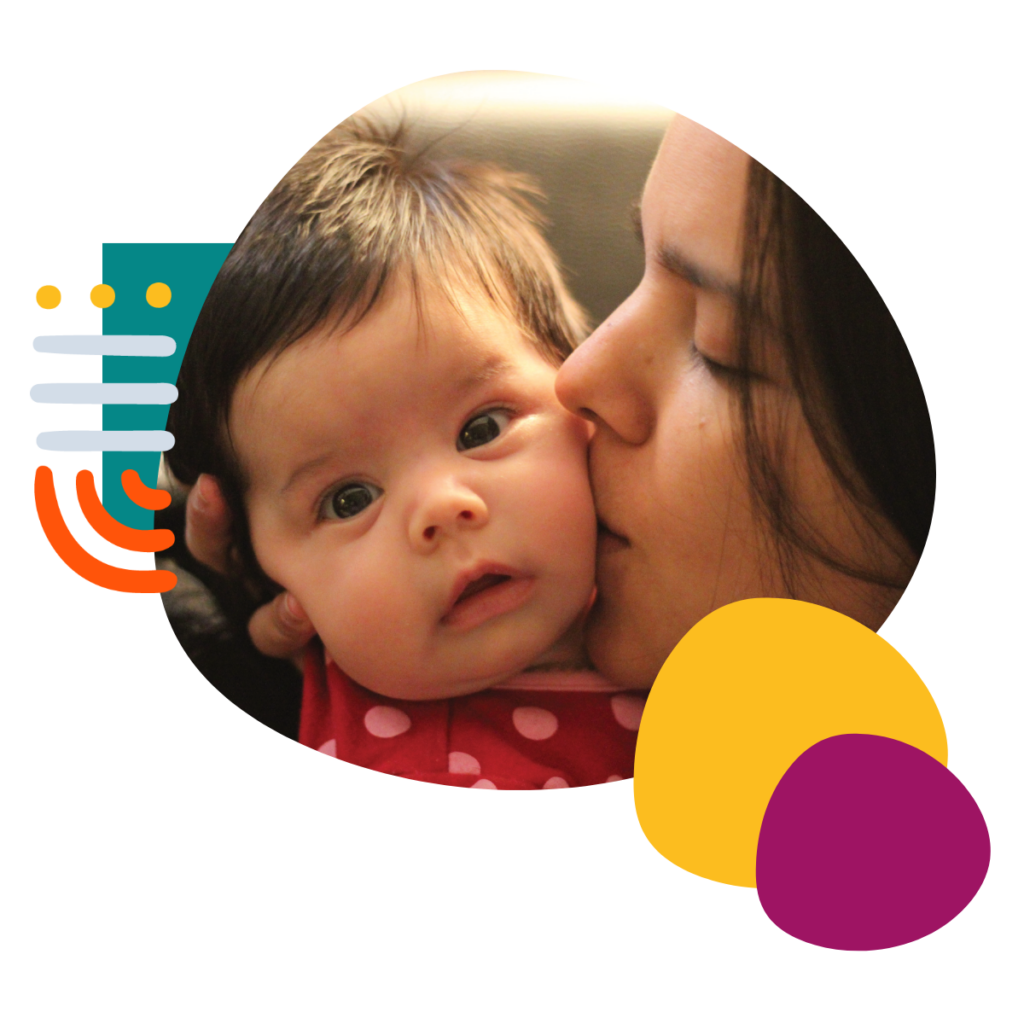
In November 2024, Nurture Connection’s ERH Family Network Collaborative (FNC) discussed the U.S. Surgeon General’s “Parents Under Pressure” advisory report released in August 2024, which highlights the stressors that impact the mental health and well-being of parents and caregivers.
Five months later, these sources of stress have only accelerated. Read on for more reflections from our FNC parent leaders, who are on the frontline of working with parents and caregivers in their communities.
“It’s hard to keep your head above water . . . ”
Parents face many sources of stress in their everyday lives — from economic barriers, dependable childcare access, and career challenges to societal dynamics of racism; keeping their kids safe, including their online safety; mental health; and more:
“I’ve made sacrifices career-wise and financially to be able to be there for my son as a single parent, and the amount of time that I have him . . . and so obviously finances can definitely be a stressor. ”
“Keeping your kids safe at school, [in] public, and on the phone and the internet and video games . . . the social media aspect of our world is so [in] pieces. . . . We think we’re so safe, and yet we’re not safe in dealing with social media on any platform.”
“Worrying about their [children’s] friendships, and setting and maintaining healthy boundaries . . . teaching and nurturing connection to their culture and language, and pressure to provide safe, secure space for family . . . ”
“There is also the racism that is actually happening within my Native American community. It’s becoming more and more ugly and it’s hard to face that.”
“I am definitely struggling [with supporting my grown-up children] . . . they still need so much guidance. . . . Am I dropping the ball with my younger children, because I’m helping my other children? And am I still being present with all four of them? Because I need to financially take care of them and I’m still struggling with my own mental and physical health.”
“They don’t have parental [support] or childcare — it just feels sometimes a little like recycled advice [that parents keep receiving]. . . . Parents are really exhausted and I’m exhausted myself. . . . We feel like we can’t catch a break, you know — it’s always getting dunked down and it’s hard to keep your head above water.”
“The well-being of parents and caregivers is directly linked to the well-being of their children. . . . If the parents aren’t well, the children are not going to be well. Stresses of parents and caregivers today are being passed indirectly, in ways impacting families and the community that we might not think about. If the parents are stressed, if they can’t meet their everyday needs, if they can’t take care of their own mental health — then that is impacting their families.”
“If parents aren’t well, the children are not going to be well . . . ”
“ . . . nurturing connections with other parents and caregivers is so important.”
Despite the compounding stressors that families face, parents continue to seek out ways to cope and often look to their children as a grounding force in their lives:
“For me, the most important thing is regulating my own emotions, and I think that’s really what matters the most, and what I find [gets] the most ROI [return on investment] is making sure I’m putting time into taking care of my mental health, my emotional health, my spiritual health. I meditate daily, I try to read daily, I journal as well — these are ways that I’ve been able to really just keep myself in a really good place in dealing with any sort of pressure.”
“I talk with other parents and multiple kids . . . it’s good to know you’re not alone. . . . I remind myself that I’m trying to heal intergenerational trauma and not have perfect children; allow myself to enjoy my children as they are now; love and forgive yourself — failure is inevitable, but that doesn’t mean you stop trying to know better and be better.”
“On page 29 [the report] used the name of our movement — it’s bolded — ‘nurture connections with other parents and caregivers.’ . . . Our movement is named Nurture Connection, and they finally said [it] — that nurturing connections with other parents and caregivers is so important.”
“I think this is where highlighting how powerful Early Relational Health can be something that helps relieve stress — like when I’m with my child and I can focus on just staying present and just promoting that Early Relational Health, because it’s reciprocal. It’s fulfilling for me, and it feels like that’s something that is so important in my life. . . . Part of my purpose is raising this child to be healthy — mentally, emotionally, spiritually — and it’s reciprocal. So I think just continuing to highlight to parents and to everyone who interacts with parents, how powerful this Early Relational Health can be.”
“Raising children is sacred work . . . ”
“I’m trying to heal intergenerational trauma . . . it’s good to know you’re not alone.”
Looking ahead, there is still much work to be done to relieve parents and caregivers, who are trying to do their best for their children:
“I like that [the report] was a call for action regardless of what level you are and that it breaks it down: what can the government do, what can parents do, what can the community do . . .
So really, you can place yourself in any of these groups and there is something that everybody should be able to do to support [parents] — because as the article starts with the phrase ‘raising children is sacred work’ and it should matter to all of us. And if it matters to all of us, then we need to do something about it. . . . It’s not enough to say I care; I need to have actions that show I care.”

This is part of an ongoing series on parental stress, featuring reflections from the ERH Family Network Collaborative (FNC) and Nurture Connection community.